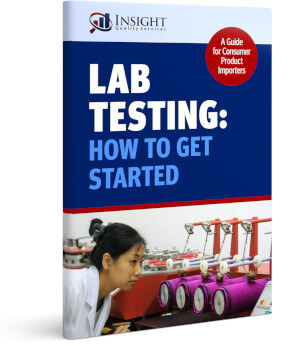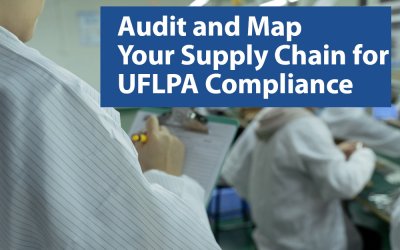In the early 2000s, parents rarely paid attention to the potential health risks of store-bought toys and children’s products. Many were comfortable with purchasing these seemingly harmless items without even a second thought. Not after 2007!
2007 marks the year of a record-high product recall in the US. Mattel Inc, the world’s largest toy manufacturing company at the time, had to recall 436,000 Chinese-made die-cast toy cars because they were covered in lead paint — a poisonous substance if consumed by toddlers. This led to the enactment of the Consumer Product Safety Improvement Act (CPSIA) in 2008.
As an importer of consumer goods, especially children’s products, you’re probably wondering about how the CPSIA affects you and your business. Before you proceed with doing business with toy suppliers or manufacturers based abroad, it’s in your best interest to take a look at this article. It covers everything you need to know about CPSIA compliance.
Table of Contents
What is CPSIA?
The CPSIA is a United States law that targets products designed or intended primarily for use by Children 12 years of age or younger. This regulation requires strict control over lead and phthalate content in children’s products.
It specifically requires that lead content in the substrate materials in children’s toys is limited to 100 parts per million (ppm), while the lead content in surface coatings and paint is limited to 90 ppm. The regulation also restricts the amount of phthalates (including DBP, DEHP, or BBP) in children’s products to 0.1 %.
So, let’s talk about your responsibilities as an importer of children’s products.
What are US Importers Responsible For?
As an importer of children’s products, you are now required to issue a certificate of compliance stating that the product is compliant with all US product safety requirements. But before that, there are a few critical requirements you cannot afford to ignore.
1. You are Required to Implement a CPSC-Compliant Product Testing Program
Federal law requires that you perform product testing through a third-party, CPSC-accepted laboratory. These laboratories will typically carry out a series of tests on raw materials and components of your first production batch to ensure it is compliant with consumer product safety requirements.
Even after passing this initial test, you are still required to have a periodic testing plan. The periodic testing is mostly done annually and will typically involve the CPSC-accepted laboratory testing random samples of your toddler products.
2. You are Required to Produce a Children’s Product Certificate (CPC)
The Children’s Product Certificate certifies that the children’s product you are importing complies with the restrictions on the use of lead and phthalates as well as other applicable children’s product safety rules.
Although there is no requirement to file your CPC with the government, federal law requires that this document accompanies your product shipment and be provided to distributors and retailers.
You may also be required to provide this certificate, upon request, to the US Consumer Product Safety Commission (CPSC) and to the Commissioner of Customs. There have been numerous horror stories about customs delays due to incorrect or missing CPC. (Related Post: How to Avoid Customs Delays and Ensure Timely Shipments)
Why is it Important to Comply with CPSIA?
You’re probably thinking: “CPSIA was enacted to make my life as an importer harder.” The truth is that CPSIA comes with lots of benefits as well as unimaginable penalties.
Here are the reasons why you must comply with CPSIA.
1. You Incur Fewer Risks
Penalties for non-compliance include seizure of products and fines of up to $100,000 per violation. As a consumer product importer, these penalties should be the least of your worries. There have been cases of people who were sentenced to federal prison for violating consumer product safety regulations and non-compliance with CPSIA.
2. It helps to Improve Manufacturing Standards
The enactment of the CPSIA has helped to reduce the number of complaints by consumer product importers about non-compliant or low-quality products. Because suppliers based abroad are aware of third-party lab testing, they are forced to make positive production changes to ensure quality and safety standards.
At Insight, we work closely with several CPSC-accepted labs and can assist you if you don’t have a lab testing partner already. These labs can also carry out mechanical testing, reliability testing and will help you verify that the raw materials used by your suppliers are not of a lower grade than you expect.
Do you want to avoid supply chain problems that can lead to civil fines, product recalls, and reputational harm? Then download our free guide, Lab Testing: How to Get Started.
Lab Testing: How to Get Started
As a consumer product importer, lab tests help you ensure that your products are compliant with regulations in the country of importation.
We’ve put together this guide to help you get started with lab testing so that you can make your products available for sale sooner rather than later. Avoid fines and customs issues by starting off on the right foot.





0 Comments